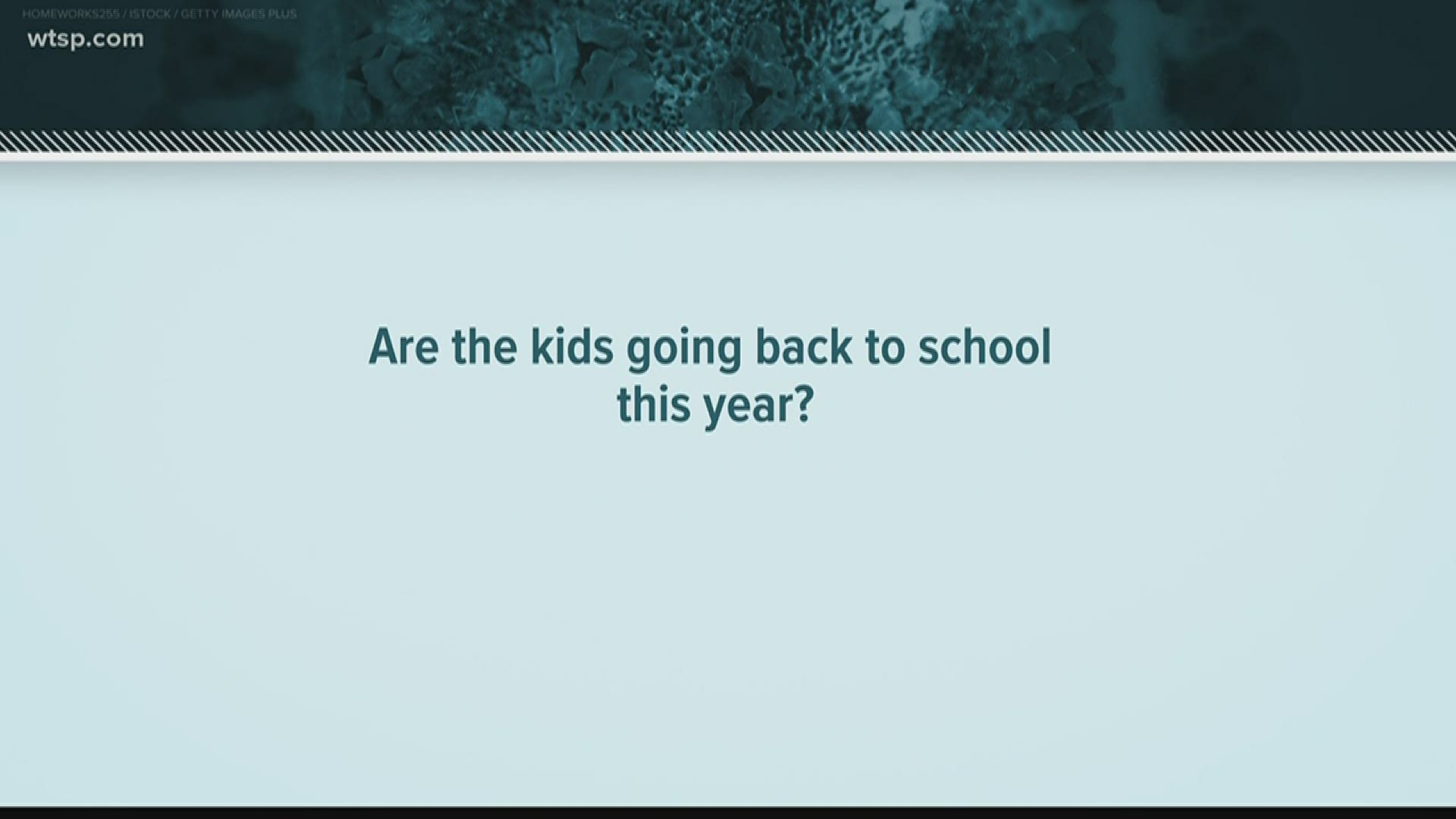ST. PETERSBURG, Fla. — We took your questions to Dr. Jill Roberts, a professor at the USF College of Public Health. She specializes in molecular epidemiology and emerging diseases, meaning she tracks how diseases travel and change.
Here are some of the top questions.
Q: How long does it take to get over COVID-19?
A: Different people have different results and that really depends on how sick you get. So we’re seeing some people who are having severe disease who are in the hospital for weeks. Now even with mild cases, and I’m using the term mild broadly because the disease is no joke, a mild case still has fevers and chills and all those kinds of things. Those people are still reporting being sick for weeks.
Q: How long are you contagious for?
A: We don’t have the definitive answer. It seems like there’s a really broad range for a person that is symptomatic which is not something you see with most viruses. Most viruses, someone is infectious for one or two days before they’re actually symptomatic but with this we’re looking at the possibility of up to two weeks that somebody could actually be contagious before they have symptoms.
Q: Masks or no masks?
A: Masks are a definite yes. We have pretty good data showing why we should use masks. One thing I think you need to be aware of is you’re not actually using that mask so you can protect yourself from getting infected, it’s actually protecting other people from you.
Q: Gloves or no gloves?
A: Gloves, no. There’s no reason to. So this is an airborne, droplet virus. It’s not going to be something, for the most part, touching a surface and getting. That could happen, however there’s no difference between infecting your gloves or your fingers. If you’re going to wear gloves, you’re going to still touch your face.
Q: Can you get coronavirus again?
A: The reality with that is the scientists are discussing and looking into it. Most people believe that you probably get immunity and you probably don’t get it again however there’s been a limited number of cases of a few individuals who maybe possibly did get it again.
Q: If the virus doesn’t like heat, then why is it in Florida?
A: Yea you would think it’s nice and hot in Florida but where are we all at right now? We’re all inside with the air conditioner running so the reality is that most of the cases are probably spreading in indoor environments where it’s nice and cool.
Q: Dr. Roberts, I know this won’t be your decision but a lot of people asking are the kids going back to school this year?
A: Yea, I think that’s a huge mistake. So for one thing, the school year is not that far away from ending, we’re only looking at about six weeks left. When public health works, we generally don’t tend to notice because it’s working so we’re not seeing the hospitals overloaded and those sorts of things. One of the reasons this comes up by the way is because the disease is really mild in children but those children go home so who takes care of them? I see all kinds of grandparents picking up at my school so the big concern is we send all the kids back to school and they become little, tiny vectors of disease.
Q: What about taking Vitamin C and Airborne to build your immunity?
A: Some of the things that are really good for building up your immunity are getting enough sleep, exercising, and eating right.
Q: Why do some people not get it bad at all and others this virus kills?
A: We’re all different in our underlying hosts, immunities, and factors. One of the things we’ve already seen worldwide is have underlying comorbidities.
Q: Should we be cleaning our groceries when we bring them home?
A: There’s no harm in doing that. You can spray your groceries with many different disinfectants. Theoretically it can spread that way but in reality the risk is very very low. So if you’re worried that you haven't taken the cleaning steps, it’s highly unlikely you’ve put yourself at risk.
You can watch our entire Q&A conversation with Dr. Roberts in the video below.
- You could get a $2,000 per month stimulus check under proposed bill
- Publix offers extended shopping hours for first responders, hospital staff
- Should Florida schools stay closed? More than 25,000 people who signed this petition say ‘yes’
- Support Tampa Bay: Which local businesses are open right now?
- The IRS is now depositing coronavirus stimulus checks | Here's what you need to know
- Hotlines, websites offer the latest on COVID-19
- Don't post your senior pictures on Facebook
FREE 10NEWS APP:
►Stay In the Know! Sign up now for the Brightside Blend Newsletter



